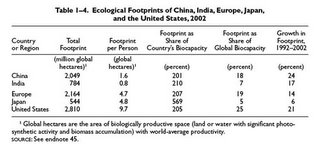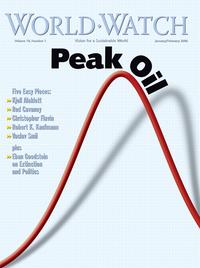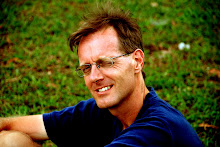By Roxana Robinson | January 1, 2006 | The Boston Globe
IT WAS SHAMEFUL, everyone agreed afterward, that no one did anything at the time. Because people knew it was happening. There were reports, early on. People saw things, near where it was happening. They knew. Later, they said they hadn't known, really; they hadn't understood the scale of it. They explained their reasons for doing nothing. They said the government was responsible, there was nothing they could do. Certainly the government was determined to carry out its plans, and maybe people felt overwhelmed and helpless. Maybe this was a place where the curves of ignorance, courage, and survival instinct intersected, to exclude the possibility of action.
The affected population knew about it, of course, but they had no political power, no voice. As they diminished in number, they became increasingly less important, which seemed to validate what was happening. How could they be important if they were gone?
Even the people who were distanced from it, and not in danger, knew about it, but they did nothing either. Maybe they didn't believe what they heard. Maybe they felt it did not threaten them, it was too far away and too terrible. There are things too terrible to consider. If you acknowledged their reality, you would be unable to function. And where would we be, if we couldn't function?
The news has actually been coming in for decades -- from the field, from eyewitnesses, from relief organizations. We can even see the evidence ourselves -- it's happening near us, wherever we are -- but we don't believe these accounts, even our own. We don't want to, because they are too terrible to consider. We're afraid we won't be able to function. The more tremendous a threat is, the harder it is to comprehend. As Raphael Lemkin said in 1944, ''. . . reports which slip out from behind the frontiers . . . are very often labelled as untrustworthy atrocity stories, because they are so gruesome that people simply refuse to believe them." What we're hearing is too frightening to believe.
The evidence is still growing, and growing worse, but we're still resisting it. When the scientists grew more serious and more impassioned about the situation, when they began giving numbers, offering proof, asking for action, we decided that we no longer believed in science. We distanced ourselves; we hoped we wouldn't be affected. The population at risk is not our population, at least not right now, so we needn't do anything right now. We might do something later. The government can do something if there's a real crisis. We trust the government to take care of us, to act responsibly. Believing this is easier than taking drastic steps to stop what's happening, particularly since this government is very much opposed to stopping what's happening. This government is very much intent on pursuing its present course, which results, as a side effect -- though the government would not acknowledge this, or even comment on the fact that it is taking place -- in the complete destruction of the affected population. The affected population is one-half of all the species presently living on earth.
Fanaticism is a driving force here, as it often is behind great crimes. This is a crime against nature, and this fanaticism is economic -- the belief that money and profit should outweigh all other considerations, including survival of the species. If we maintain our current rates of consumption and environmental strategies, by the end of this century, one-half of the species now alive on earth may be extinct. We don't know what the specific effects will be, but we know they'll be extreme. We're presiding over the greatest extermination of living species since the end of the dinosaurs. We're eliminating habitat, reliable climate, fresh water, clean air, and nourishment. We're imposing intolerable living conditions on thousands of species. The current rate of extinctions is thought to be at least 1,000 times higher than the natural level. Right now, one-quarter of all mammals are endangered with extinction; one-third of all species, animal and vegetable, may be gone by 2050.
It may not be evident to us, as we sit in our cubicles, at our laptops, but we need these other species, even those that seem impossibly small and remote. We need the Northern lapwing, the Scottish crossbill, the king protea (South Africa's national flower), the albacore tuna, Boyd's forest dragon (an Australian lizard) -- all of which are in dire straits. We're interconnected to everything. The scrawniest weed in Patagonia absorbs carbon dioxide, which poisons us, and produces oxygen, which we breathe in New York or Houston. Plants provide air, food, and medicine; every living being occupies a niche in the global mosaic. Birds transport seeds and pollen; they destroy insect pests; they clean our harbors and cities and landscapes. All living species perform functions valuable to the ecosystem, to the planet, and to the people who live on it. But species everywhere are being systematically deprived of the possibility of life.
We know what we're doing. We hear the reports, the gruesome stories, but we've decided just to wait and see. We think the scientists -- all of them -- could be wrong. Maybe we'll just do nothing. Short-term self-interest suggests that we do nothing right now. Why should we drive slower cars because of the Scottish crossbill?
Cutting fossil fuels and reducing greenhouse gases would save many species from vanishing, but we're not committing ourselves to that strategy. One hundred eighty-two nations ratified the Convention on Biological Diversity; the United States -- largest producer of greenhouse gases -- is the only industrial country that refused. We didn't want to be subject to any regulation over our destruction of the air, the water, the habitat, and the voiceless inhabitants of the earth. Others agree. Many developing countries wanted nothing in the treaty that might limit their freedom to exploit -- and destroy -- their natural resources. So the treaty is neither very powerful or effective, since almost everyone involved places short-term economic goals ahead of the long-term health of the planet. Similar issues affect the Kyoto Agreement. It seems we're all in this together, this destruction of species. This is an international effort.
Do we not think we need a healthy planet? Do we think that the animals dying all around us means nothing? That this wholesale destruction won't affect us? Where are the birds, most common and vivid form of wildlife? Intensive agriculture destroys hedges, woods, and wetlands that birds need for feeding and nesting; toxic chemicals poison the pests and the seed-bearing wild plants they need for food. Logging destroys whole regions of habitat; industry pollutes air around the globe. The birds can't build nests, they can't find food, they can't feed their young. They're dying off. Migrating birds used to move in flocks of thousands. Now they straggle past in groups of 20 or 30. Remember the passenger pigeons? Once they darkened the entire sky, across the prairies; we wiped them out in a few decades. We're watching life being extinguished all around us.
The use of fossil fuels, and the resulting climate change, is wreaking havoc everywhere. Monster storms, temperature spikes, and erratic, destructive weather all take their toll on agriculture, construction, transportation, and communication, as well as wildlife. Do we still think we don't belong to the affected population? What if the group we're destroying turns out to include our own? Don't we remember the canary in the coal mine? The canaries are dropping like flies. Why are we standing here, holding the cage?
Whom will we believe, if not these scientists -- experts in the field -- with their gruesome and alarmist facts? How long will we keep denying the evidence? What will we say to our children, and their children, when they learn about the beautiful, rich, and varied life on earth that we were privileged to know? The fields of rippling grasses, the graceful trees, the strange and marvelous wild creatures -- how will we explain that we stood by and watched all this vanish? What kind of courage do we need, to respond to what's happening?
And this time, there's no one else to blame. It's us.
Roxana Robinson is a novelist, most recently of ''A Perfect Stranger."













